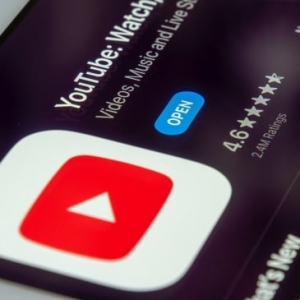CONTACT US
info@bidaiondo.com

YouTube forces creators to identify content generated by artificial intelligence

From now on, videos generated by artificial intelligence that look credible will have to be flagged by their creators when uploaded to YouTube.
Specifically, they will have to select in this process whether the content shows someone doing or saying something that does not correspond to reality, alters a recording of a real place or event, or includes a scene that has not happened.
The platform thus follows in the footsteps of other environments such as TikTok or Facebook to try to tackle the risks of misinformation and manipulation that these pieces entail.
This danger is especially pronounced close to elections and the current year is historic because it has recorded at least 70 processes of this type in different parts of the world with hundreds of millions of citizens called to vote. Among them, presidential elections in the US or the European Parliament. And in fact, the capabilities of generative artificial intelligence also appear classified as threats in the 2023 Annual National Security Report that has just been approved by the Spanish National Security Council.
The labeling requirement is a key tool to reduce these risks but at the moment the experience is not showing good results. A recent study by the Stanford Internet Observatory on Facebook describes the prevalent use of manipulated or automatically generated images as a lever to increase page followers, despite the demands of the social network. In an undetermined percentage of cases they have a parodic or sarcastic spirit, but some people take them for real when they find them decontextualized in groups, which increases the problem.
In the process of uploading a video it will be necessary to select options in a menu that make clear the use of that technology if what it shows seems credible.
To avoid this situation, YouTube threatens offenders who may repeat failure to report the upload of this type of content with actions ranging from the removal of the video to the suspension of membership in the Partner program. The latter would cut off the advertising monetization of the affected users, which in turn would also reduce the possibility of advertisers appearing next to this type of creations and the eventual associated brand safety problems.
The new regulations do not apply in any case to those pieces in which it is evident that there is no intention of realistic replica or that do not have problematic consequences. The platform cites as examples the creation of animations or the automatic optimization of lighting or color settings. YouTube will also not force creators to reveal whether they have used that technology to generate scripts, content ideas or automatic subtitles.
https://dircomfidencial.com/marketing-digital/youtube-obliga-a-los-creadores-a-identificar-el-contenido-generado-por-inteligencia-artificial-20240320-1339/
Last news
Llega Ecommerce Moment Barcelona 2026: casos reales sobre innovación, retail media, liderazgo y nuevos hábitos de consumo

La Comisión Europea exige medidas urgentes a Meta para que los asistentes externos vuelvan a Whatsapp

online trading systems.
 We show you the best way to market products and services online, through a professional service of installation, management and maintenance of your virtual store
We show you the best way to market products and services online, through a professional service of installation, management and maintenance of your virtual store
We program to suit you
 We help you achieve operational excellence in all your business processes, whether they are production, logistics, service or office processes. In addition, we assure you to maintain continuous improvement in your management.
We help you achieve operational excellence in all your business processes, whether they are production, logistics, service or office processes. In addition, we assure you to maintain continuous improvement in your management.
Bidaiondo Articles
We take a look at how ChatGPT's new advertising works, which is already live.

ChatGPT has finally launched advertising on its platform. Relatively quietly (considering the importance of this development for the future of its business), Sam Altman's company has already rolled out ads on ChatGPT, although for now they will be limited to the United States. This test launch is intended for adult users logged into the Free and Go plans. For the time being, the Plus, Pro, Business, Enterprise, and Education plans will not se...
The two sides of Moltbook, the social network exclusively for AI agents: entertainment and risks

A new social network has just been launched, and it's nothing like you'd expect. Moltbook is a platform similar to Reddit, but its users are none other than AI agents that debate, share, and vote, while humans are welcomed as mere observers. What is Moltbook? Last week we told you about OpenClaw, a proactive AI agent capable of taking control of your computer to help you perform tasks, which has become the talk of the town. Well, it seems...

ABOUT US
FILES

Welcome to Bidaiondo, dear user
BIDAIONDO SL, as the party responsible for the website www.bidaiondo.com, uses its own operating cookies and those of third parties of an analytical nature to allow the use of the website, analyze our services and show you information related to your preferences based on a profile drawn up from of your browsing habits (for example: pages visited). Please bear in mind that, if you do not activate some types of cookies, such as operational and analytical cookies, your experience of using this website may be affected. You can obtain more information and configure your preferences in the CONFIGURE option that appears below, you can reject cookies in the REJECT AND CLOSE option or accept all cookies and continue browsing in the ACCEPT AND CLOSE option.
So do you want to know more?
Data privacy seems important to you, and it is to us too. We store cookie data for 13 months. If you want to know more, you can visit our pages Privacy Policy y Cookies policy. Do you know what cookies are? Cookies are files that are used by virtually all websites. When browsing our page, they are installed in your browser or device to ensure that the website works correctly and store information about your visit. The data provided by cookies treat the user anonymously and in no case do they store personal information.
The data collected by the cookies we use are:
- Addresses IP
- References of visited pages
- References of downloaded files
- The website itself www.bidaiondo.com
- https://www.moz.com
- https://secure/europeanssl.eu

 Spanish
Spanish













